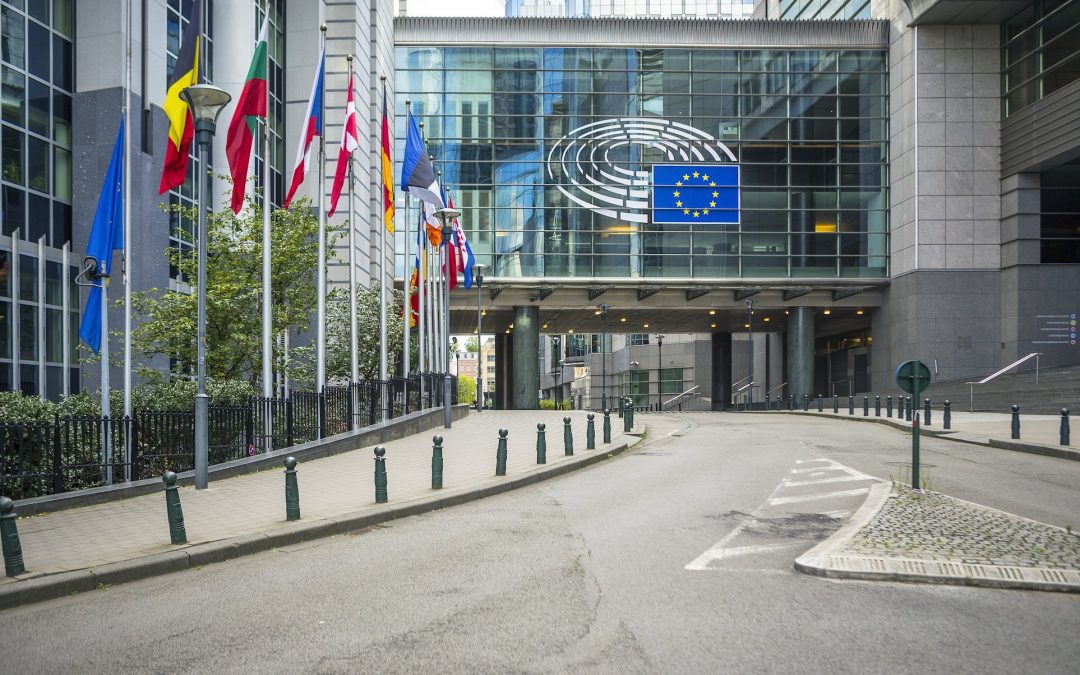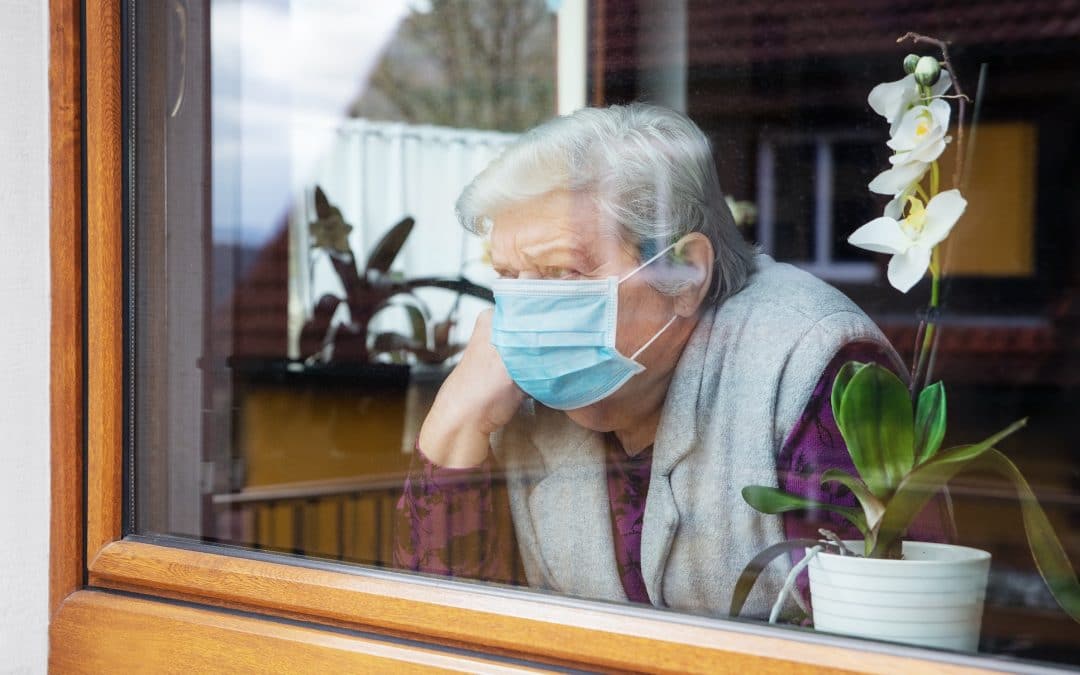
by Alliance VITA | May 12, 2021 | News, Abortion, Family
Following the
report submitted by MEP Predrag Fred Matic, the European
Parliament’s Committee on Women’s Rights and Gender Equality (FEMM) adopted a motion for a
resolution “concerning sexual and reproductive health and rights in the EU” on May 10
th -11
th. The proposal, which is very ideologically oriented at this stage, has yet to be finalized, for the plenary session debate scheduled for June.
The term “sexual and reproductive health and rights” is inherently ambiguous. Under the guise of women’s health, this confusing terminology is being used to trivialize the sensitive issue of abortion, which is not within its’ jurisdiction.
Moreover, the text does not take into account the ethical, social and cultural dimensions of abortion. It attacks the right to conscientious objection by claiming that healthcare professionals could “choose not to provide the products and services to which they are morally opposed, including abortion or … contraceptive methods.” The right to conscientious objection is guaranteed by the Charter of Fundamental Rights of the European Union (Article 10.2). The conscience clause regarding abortion is also clearly and explicitly stated in Resolution 1763 (2010) of the Parliamentary Assembly of the Council of Europe (PACE).
Although this type of document is not binding, it does voice an opinion. Nonetheless, in this case, it does not fall under European jurisdiction. Indeed, other feminine issues should be given priority to ensure suitable assistance for mothers, to prevent infertility, and to fight all forms of surrogacy, which constitute a serious violation of women’s rights, not only in Europe, but throughout the world.

by Alliance VITA | May 7, 2021 | News, Old age and Dependency
In a report published on 4 May, France’s Defender of Rights, has denounced a large number of violations of the fundamental rights to respect and dignity of the residents in nursing home establishments for aged and dependent individuals, known in France as “EHPADs”. The report reveals how the situation has been further exacerbated by the health crisis.
The Defender of Rights is an independent authority appointed to ensure that human rights and liberties are respected in accordance with the Constitution. The position is currently held by Claire Hédon. In her report entitled “The Fundamental Rights of the Elderly in EHPADs,” a large number of complaints from residents have been brought to light. “Over the past six years, the Defender of Rights Advocate has registered over 900 complaints from people objecting to the terms of their medical and social care or that of their loved ones. Eighty percent of these cases originate from an EHPAD.”
Among the many violations mentioned, the Defender of Rights reports those concerning the residents’ liberty to come and go, practicing physical or drug-induced restraint (sedation), in addition to repeated abuses involving residents’ privacy and dignity, imposing limits on visits, as well as the loss and theft of personal objects.
For the Defender, this situation shows that the abuse is mainly caused by “organizational short-comings due to staff shortages, large turnovers, burnout or lack of supervision. »
An ominous sign for concern is that violations of residents’ rights and liberties have increased since the beginning of the health crisis. The Defender describes that “arbitrary rules” (protocols, recommendations, plans, etc.) which fall outside the boundaries of judicial oversight are more and more frequently put into place. This includes restrictions on residents’ freedom to come and go, and to receive visitors. These restrictions have gone beyond official lockdown times and curfew hours and have been implemented even when the people concerned had been vaccinated.
The report also underlines the psychological impact on residents: “Many of the testimonies and complaints relate to individuals who have lost their joy of life, who suffer from depression, and who feel trapped or who no longer want to continue living.” In addition, the report also reveals how the health crisis has affected continuity in healthcare and end-of-life care.
In a press statement, the Defender insists that “the rights and freedoms of the residents cannot be arbitrarily adjusted, when the EHPADs are confronted to a lack of resources and personnel.”
In the wake of this alarming situation, the report has issued 64 recommendations to improve the healthcare for EPHAD residents and guarantee that their rights are respected.

by Alliance VITA | May 7, 2021 | Maternity, News
Miscarriage is a common event which occurs in approximately 15% of all pregnancies and affects one in ten women. An estimated 23 million miscarriages occur every year worldwide, which is equivalent to 44 miscarriages every minute.
In spite of this, the consequences and impact of miscarriages on individuals’ lives are still underestimated and even minimized. This is the conclusion of a series of 3 studies, published by The Lancet, which question many misconceptions and call for better overall care. Professor Siobhan Quenby, co-author of the study laments: “Many women complain about the lack of empathy with which they are cared for after a miscarriage: some receive no explanation, and the only advice they are given is to try again.”
The research was carried out over the past 20 years. The first of the three reports deals with the epidemiology and psychological, physical and economic impacts of miscarriage. The second one focuses on demonstrating the value and effectiveness of healthcare, and the last one evaluates specific cases of recurrent miscarriages.
The authors point out that the woman and her partner often goes through this experience feeling isolated, that they are left alone to fend for themselves and that they sometimes feel guilty. There are still many misconceptions that persist: that miscarriages are inevitable, that you need to suffer several miscarriages before investigations can be made….
Several risk factors were identified, including having a history of miscarriage, the woman’s age (under 20 and over 35), and, to a lesser extent, the man’s age (after age 40), very low or very high body mass index, alcohol, smoking, air pollution, pesticides, omnipresent stress and working night shift…
For subsequent pregnancies, the study showed that most women who had a miscarriage were then able to carry their babies to term without any complications. However, it also demonstrated a higher risk of preterm birth, fetal growth retardation and other obstetric complications in those subsequent pregnancies. For the woman’s health, a prior miscarriage was also associated with a higher long-term risk, for example, cardiovascular disease but also psychological complications: risk of anxiety, depression, and/or post-traumatic stress disorder. The report also discusses how obstetricians treat miscarriages and prevention strategies.
Based on this study, the authors urge improving overall management for miscarriages but also for subsequent pregnancies. Finally, the authors recommend exchanging data between countries, to facilitate comparison, combine research efforts, improve patient care and reflect on how the data could be used in government policies.

by Alliance VITA | May 6, 2021 | News, Euthanasia and Suicide
On April 8th, the French National Assembly debated a bill tabled by MP Olivier Falorni to legalize euthanasia and assisted suicide. The promoters of euthanasia regularly argue about the hypocrisy of the French position. They claim that the annual number of clandestine assisted deaths is between 2,000 to 4,000 and call for ending this outrageous situation. However, as pointed out in the newspaper “La Croix” on April 26, 2021, this argument is based on a distorted extrapolation of statistics published in a 2012 study.
The “INED” (National Institute for Demographic Studies) study evaluated the end-of-life medical decisions made by doctors for nearly 5,000 cases of death (or 0.01% of the total number of deaths in France at the time). Essentially the INED reported that: “Acts of euthanasia (‘ending a patient’s life at his own request’) accounted for 0.6% of total deaths; and 0.2% (11 cases) resulted from deliberately administering a substance to end the patient’s life. In these latter cases, less than 4 were defined as euthanasia by the doctor; the others were generally considered as administering sedation to relieve suffering for end-of-life distress. »
Proponents for euthanasia took advantage of INED’s rather ambiguous wording to retain the highest figure of 0.6%, and then applied it to the annual total number of deaths in France to publicize a figure claiming that there are nearly 4000 so-called “deaths by euthanasia”.
One of the study’s chief scientists has repeatedly warned about this biased analysis. On the one hand, the study does report that some patients were sedated for unspecified reasons, but if the lower number of 0.2% is used, the hypothetical number would be a little over 1000 presumed deaths by euthanasia. On the other hand, it is not scientifically sound to use such a percentage from one single study and then apply it as a representative index for the national population.
The recent article in “La Croix” reasserts what other media and organizations have already pointed out over the last years. As early as 2012, the National Consultative Committee on Ethics (CCNE) insisted on restoring the real facts in an article entitled “End of life, personal autonomy, desire to die”. Nonetheless, at the beginning of the General Bioethics Conferences during the first semester of 2018, this argument of clandestine euthanasia was again widely used in France by several politicians and journalists. Adding fuel to the fire, “fact checkers” from the Libération newspaper arrived at the same conclusion, and published an article entitled “Are there really 4,000 acts of euthanasia per year in France? Shortly after, the French Society for Counselling and Palliative Care (“SFAP”) retorted with a well-documented article entitled: “4,000 cases of clandestine euthanasia a year in France? That is not true. »
The way the promoters of euthanasia continually persist in misinterpreting the INED study finally shocked many observers and experts on these issues. For example, in a January 2019 interview with Tanguy Chatel, a specialist in end-of-life and palliative care spoke of the misinformation: “We had the opportunity, on many occasions, to politely and calmly tell those who spread these errors, that they were misinterpreting the study. The authors of the study also publicly denounced the use that is made of their work. This repeated and abusive misrepresentation shows that it is not just an accidental and excusable error, but a deliberate misinterpretation for ideological and political reasons. This figure, along with other erroneous information, is being purposefully used to push for the legalization of euthanasia by making it appear that there are more cases of clandestine euthanasia in France compared to other countries where it has been legalized. In fact, it is seems to be exactly the opposite. »
Indeed, in the countries that have legalized euthanasia, the issue of clandestine euthanasia or assisted suicide persists. For example, several studies demonstrate that in Belgium, a country presented as a model to be imitated, there is still a great number of unreported assisted deaths. Not only has decriminalizing the practice not eliminated clandestine euthanasia, but nowadays authorities just shrug it off as an inevitable fatality.
Thus, the Chairman of the Federal Commission for Controlling and Evaluating Euthanasia (CFCEE), Professor Wim Distelmans, commented on the report published in 2015 with the following remark: “Let us not forget that the number of times euthanasia has been practiced without being declared, prevents us from having a real view on the magnitude of the question.” Even more formally, the Control Commission mentions in its 2018-2019 official report (page 47): “As already stated in previous reports, the Commission does not have the means to assess the cases of euthanasia officially reported, compared to the actual number of acts performed.”
In July 2012, a study conducted by researchers from the Free University of Brussels and Ghent was published in Social Science and Medicine. Based on a representative sample from 480 doctors in Flanders and 305 in Wallonia, this in-depth survey revealed that 27% of all euthanasia practices in Flanders and 42% in Wallonia were never reported to the Control Commission.
In Belgium this alarming practice of undeclared, and therefore illegal, euthanasia was corroborated by a second study. Published in 2018 in the Journal of Pain and Symptom Management in 2018, it was found that at least 31% of euthanasia practices carried out in Flanders in 2013 were not reported to the Control Commission. In a significant number of these unreported cases, the patients were sedated (with or without consent) in order to hasten death. The study indicates that many doctors do not even consider these acts as euthanasia and find it therefore unnecessary to file official declarations for the Commission. Nonetheless in the medical and legal sense of the term, if a doctor injects a patient with a product to hasten his death, whether it is inherently lethal or not, this act is indeed qualified as euthanasia, due to the doctor’s intention.

by Alliance VITA | April 30, 2021 | News, End of life
Recently in Northern Ireland, a qualitative study was conducted in an intensive care unit to investigate the causes of moral distress in physicians and its’ consequences on making decisions affecting end-of-life patients.
As one of the first ethicists to study moral distress in nurses, in 1984, Dr. Andrew Jameton explains: “Moral distress arises when you know the right thing to do or the correct action to take …, but obstacles or organizational constraints prevent you from acting accordingly”.
The study published in the International Journal of Medicine states : “Decisions for end-of-life care are a source of moral distress. Among the patients admitted to critical care units (CCU), approximately 13 – 20% die as a result of decisions about non-escalation and/or withdrawal of life support. The patient’s advance directives are rarely known or made available; thus, the responsibility falls upon others to make decisions in the patients’ best interests. »
Based on patient case studies, 21 in-depth interviews with senior and junior doctors were examined. It was found that decisions are often made “under emotionally intense conditions, and are complicated by having life support administered, and the difficulty in predicting death.” The analysis determined two main themes: key moral distress triggers; and strategies and consequences.
- In young doctors, moral distress is triggered by a feeling of futility, lack of continuity, protracted decisions and failure to ensure a “good death”. Senior physicians appear to be less affected by moral distress probably because of a greater degree of “autonomy” in decision-making.
- The consequences of moral distress affect personal life, working relationships and career choice.
This UK study is the first to explore physicians’ moral distress in end-of-life decisions in intensive care. The results of this study have implications which need to be taken into account for physician education. The Covid-19 pandemic amply illustrated caregivers’ lack of preparation for death. In France, the decisions for “Limiting and Stopping Active Therapeutics” (LATA) for the sick and those at the end-of-life is regulated by the Leonetti Law enacted on April 22, 2005.
This study illustrates the potential misunderstandings about palliative care which can relieve symptoms to improve the patient’s quality of life during every phase of ill health. By using a comprehensive approach which takes the psychological, relational and spiritual dimensions into account, supportive palliative care can coexist harmoniously and simultaneously with treatment objectives. This study demonstrates the need of integrating palliative care into intensive care units and medical student education programs.





